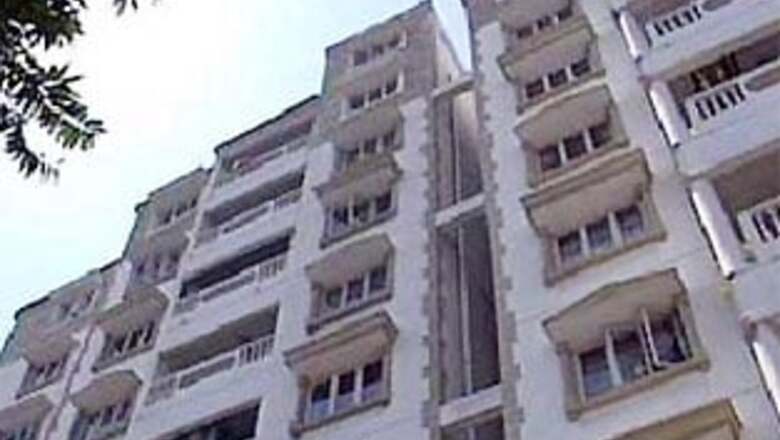
views
Director Finance Puravankara, Ravi Ramu expects sops for affordable housing in the Union Budget. He also wants bank credit to the construction industry monitored during the stimulus package.
Ramu feels interest rates need to be reduced by a couple of percentage points.
MD Dalmia Cement, Puneet Dalmia wants the Government to rationalize excise duty and sales tax structure in the Budget. “Excise duty should be based on ex-factory realisation because that is what cement companies get in their books. There is a NCAER study which has recommended an abatement of 55%, but we are requesting an abatement of around 35-55%.”
Here is a verbatim transcript of the exclusive interview with Ravi Ramu and Puneet Dalmia on CNBC-TV18.
Q: A lot has been spoken about the affordable housing scheme. We understand that CREDAI or Confederation of Real Estate Developers Association of India met with the FM with a proposal this last week. Do you actually expect things to happen in the Budget on this front? We understand that the big boost will also come through by way of the JNNURM scheme?
Ramu: We have a lot of expectations up that particular alley, the affordable housing alley that is. But we need to be very clear on what is affordable housing. There seems to be confusion there.
What I would prefer is a combination of two factors for this concession to be considered. One, the size of an apartment. It can be a 1,000 square feet, 800 square feet, whatever. But in that range up to 1,000 square feet. Also, a price cap to it, because 1,000 square feet in MG Road in the CBD of a particular city cannot be classed under any terms as affordable.
So, there needs to be a double definition so that there is proper benefit going to the right builders and also something that the end user can really benefit from.
Q: Do you expect interest rate sops for home loan borrowers and all to come through? Do you also expect rates to soften further?
Ramu: Both your questions are very closely linked. Interest rates have to come down. Let’s face it. Indian interest rates are perhaps the highest in the world. They are not realistic. Inflation is down. In fact, there is deflation supposedly if the government numbers are to be believed. So, when you are looking at an environment like this, this is an imperative. Interest rates have to come down by another couple of percentage points, not just a quarter percent here and there.
Linked to this interest rate issue is the availability of finance. I believe during the boom time, availability of finance became far too simple, and easy. This is what has caused a lot of the excesses in real estate for example. We need to have proper regulation; we need to have bank credit to the construction industry monitored during the stimulus package. It was said by the government that every fortnight industry-wise credit offtake would be monitored.
What is the result of that? Now that the same government is back we would love to know what exactly the monitoring has resulted in, how much of money actually goes on a fortnight basis, or even if it is not fortnightly at least on a quarterly basis to actual good construction projects. That is the imperative right now and the need of the hour. It is now enough of rhetoric and time for us to really monitor and make the banking and the finance industry accountable to all the credit that the construction, the real estate industry deserves.
Q: The fortunes of the real estate sector and this event sort converge. What are you really expecting this time around as far as the Budget is concerned? I am assuming the excise duty cuts will top the wish list. You would at least hope for a continuation.
Dalmia: Yes. I think cement is a very heavily taxed commodity. We have made several representations to the government to rationalize the excise duty structure and the sales tax structure. On excise duty we want that instead of it being MRP based, it should be based on ex-factory realisation because that is what the cement companies get into their books. So we are requesting for abatement. There is a NCAER study which has recommended an abatement of 55% but we are requesting an abatement of anywhere between 35-55% and we hope that the government will examine it favourably.
Q: There are high expectations that the government will focus on infrastructure spending particularly on the NHDP. Do you expect concrete action on that front?
Dalmia: I am not just hopeful but I am very confident that it will actually translate into concrete action on the ground. We have a Mr. Kamal Nath who is in charge of the road construction in the country and he was the Commerce Minister and has an excellent track record of getting things done. So I think that is one area.
Other than that we have seen that this is pro-development vote in the country and I think the government is very conscious of the fact that getting basic infrastructure into play is one of its most important priorities and not just from an economic standpoint but even from a political standpoint. So it is clear that good economics is good politics.
However, I think we must remember that India is a democratic country and it takes time for things to happen. So whether everything will happen in financial year 2010 or not is something to be seen and on that front I am a little bit more pragmatic and realistic given the democratic nature of our country.
So I think in the next five-years we are going to see a lot of action but will that happen in ten-months or will that happen over 24-36 months is something that remains to be seen.

















Comments
0 comment